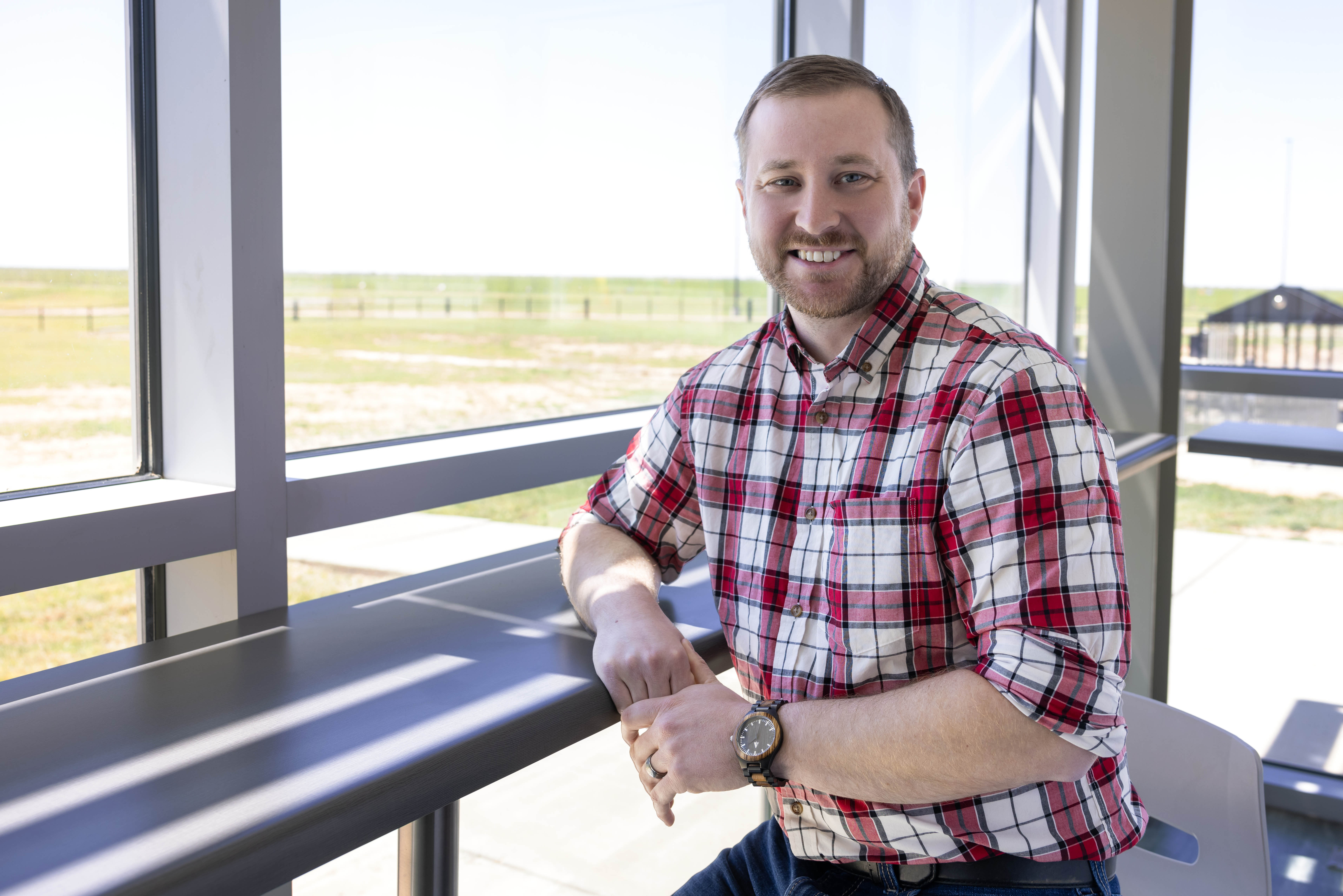I am Mission Success: Eric Bowen

Eric Bowen’s role at Pantex is a perfect mesh with his skills and interests.
The rules and instructions used every day by Pantex employees doing the hands-on work for the mission are exacting and complex. Humans are a wild card in the equation due to our tendency to perform small variations when completing tasks, whether by error or happenstance.
The solution to this variable has been the Human Factors Engineering group – a small number of employees who consider human tendencies and work to eliminate their risk in a process.
Among them is Eric Bowen, an Amarillo native and a generational product of Pantex. Both his parents were longtime Pantex employees, and hearing about a training course his dad attended related to human factors piqued his interest.
“I had an interest in psychology, but didn’t want to be a therapist,” Bowen said.
This seemed like a perfect fit – he went to college at Texas Tech to pursue higher education in psychology and industrial engineering. While he was earning those dual degrees, he felt a calling to do something more, and thus signed up for the Army National Guard.
He worked initially as a mortarman before he was given the opportunity to attend sniper school.
“I feel like every little boy, at some point, has a dream of growing up and becoming a sniper, and I was able to fulfill that dream,” Bowen said. “I loved being a soldier. I still say that being a sniper was the best job I ever had!”
When it was time to settle down with his wife, Laura, they chose to make their home in Amarillo and he joined Pantex’s efforts as a human factors engineer. The Human Factors group is housed within Process Engineering. The idea is common within high-reliability manufacturing industries, but it is rare in the Nuclear Security Enterprise – only Pantex and Sandia have Human Factors employees. Sandia’s team focuses more on design, while Pantex’s team focuses more on hands-on work.
“We look at human capacities and limitations — physical and psychological — and use what we know about that to fit the work to the worker instead of trying to fit the worker into something not designed for them,” Bowen said. “We want to get away from ‘blame/shame/retrain’ and look at actual processes and sequences without leaving anything out.”
They prevent errors by doing procedure validations, and inspecting the processes to evaluate everything from whether tools are designed appropriately, to the cognitive load being applied to a technician. They also advise in casual analyses after an error occurs to locate flaws in the process and work to eliminate them.
Their job primarily focuses on manufacturing processes, but they also provide advice to anyone looking for ways to improve their systems.
It is a perfect fit for Bowen’s interests and talents.
“There is nowhere else I would rather be today,” Bowen said.
What has surprised you the most since joining CNS?
I would say the complexity of everything that needs to get done every day to make the work we do at Pantex possible. Everyone has an important job that they must execute to enable our mission.
What stands out to you about your site?
The singularity of our mission. There is no other site in the nation that is equipped or staffed to do the very specific work that we perform every day.
Give an example when teamwork has helped you in your role.
Wow, there are too many to count. The Human Factors team is so close knit we are always sharing projects and contributing advice if an issue falls more within the realm of another’s expertise.
What is your favorite aspect about your work environment? How does that aspect make you know the mission is being met?
Without a doubt it is the people I work with. Our Human Factors Engineering team has some of the friendliest and smartest people I could ever have the pleasure to work with. Outside of our group, I love the culture within Process Engineering. Our department is close knit and always willing to drop what they are doing to lend a helping hand.
What work advice would you offer someone who is new to Pantex or Y-12?
Talk to people. Build positive relationships with everyone you can. We all have a different perspective based on our roles, the more of those different perspectives you can add to your own point of view, the better informed you are when making decisions.
What’s your favorite outside-of-work activity and why?
I really enjoy traveling to shooting competitions with a few of my sharp-shooting coworkers. We enjoy challenging each other and it is important to keep those skills sharp.
